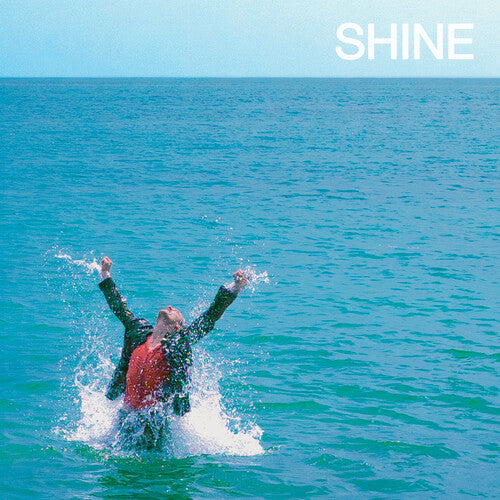Arbutus Records
Sean Savage Nicholas - Shine - Baby Blue
Sean Savage Nicholas - Shine - Baby Blue
Usually ships within 1 to 2 weeks.
Couldn't load pickup availability
SKU:ARBU108.1
Share
The glimmer of light in a stray cat's eye, the ebb and flow of ocean waves upon the shore, the bright streak of a comet across the night sky, the unconditional love between a mother and child: these are some of the poetic elements that sparkle at the core of Shine from Sean Nicholas Savage, the follow-up to 2020's Life is Crazy. Where that album explored the crushing beauty of life, Shine is a record about recapturing the will to live after a period of sadness and stagnancy, and the return to positivity and hope wrapped up in music that adds a sense of rhythmic guitar-based folk intimacy to Savage's hallmark ebullient avant-pop.Savage says he was leaning into his "Tatsuro Yamashita and Elliott Smith fandom" for Shine, a mix that immediately comes through vividly on opener "Feel Like A Child," which was the first song he wrote for the record. The pandemic had taken both an emotional and artistic toll on Savage, sapping his ability to be creative. It was after a long stay spent alone on the island Crete, sitting and staring at the sea that he felt a spark coming back to him. He sang "a long joyful memo" into his phone as he fell asleep one night, transcribing the words upon return to his home in Berlin and putting them to music. "It's a circular song about a return, for a time when I could feel wonder again, could imagine anything new," he says. "It's possible to heal and fall in love with life in a new way after everything is destroyed." This reaffirmation of love and healing is at the heart of all the songs that make up Shine, not only thematically but sonically as well. Shine was recorded in Los Angeles with Savage's longtime friend Mac DeMarco, who produced the record. Savage credits DeMarco with an enthused and open minded approach, allowing the songs to become a reflection of the vulnerable, intimate feel Savage envisioned for them. "With Life is Crazy, I was delving into the overwhelming emotional experience of life and with Shine, I just wanted to dive in and be more healing," he says. The difference is apparent in Savage's vocals, which have a raw and intuitive feel to them. Recording with DeMarco was "the first time I have experienced where I would do a vocal take that was pretty raw and when I listened back, I actually liked it more than when I really 'sang' it. We also weren't recording late at night-we would record in the morning and I was singing very softly," says Savage.The draw of the pop hook remains an undeniable influence on Savage, as does the narrative feel of musical theatre, where each song tells a story in a literal way. For Shine, he wanted to bring those influences to the fore but in a more subdued way-something that is apparent in the gentle "Comet," a song that captures the exhilaration of hopeful expectations "illuminating your life like a comet." Originally written for a later-abandoned Max Martin-style project, Savage describes listening to a lot of Britney Spears and NSYNC at the time, and the song retains the directness of songs created to hold the weight of huge pop production. Yet, dialled down to it's essence with nylon guitar and soft vocals, it takes on a comforting warmth. "It's kind of like a boy band doing MTV Unplugged," says Savage. Instrumentally, Shine differentiates itself from Savage's past records through the use of the guitar as the primary instrument. While these are not straight-ahead folk songs, they do borrow from that genre's sense of closeness, the unadorned feel of the instrumentation allowing the raw emotion of Savage's lyrics to come through. On the title track, Savage sings of a place at the end of the world where one can find the seed of an entirely new universe within the gleaming eye of a seagull, and how that can expand one's sense of existence within something greater- "Every night we're still alive/ The moon sighs over you and I," he sings. Shine's themes come together on "Poetry is My Only Chance," an ode to a life lived, being the best communicator "I think that the whole idea of poetry is to speak or write beyond language. Whether this is taken literally or meaning a poetic life, a poetic perspective fills in those perilous gaps in our perceptions," says Savage.



